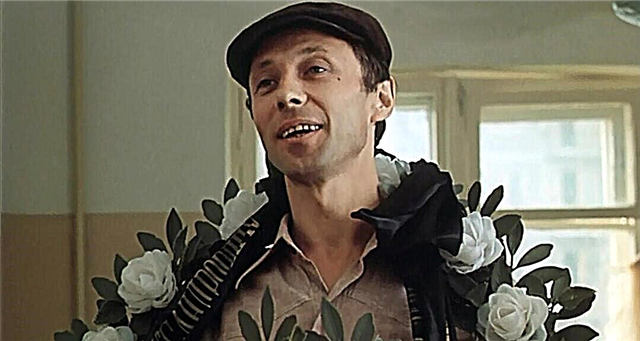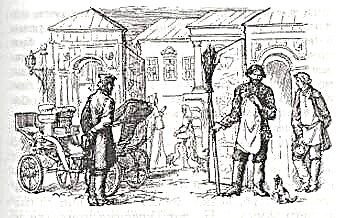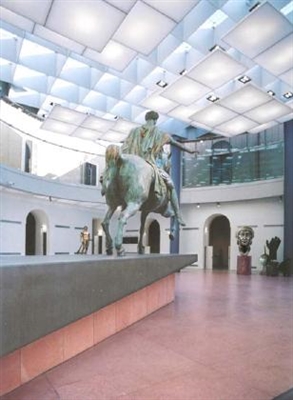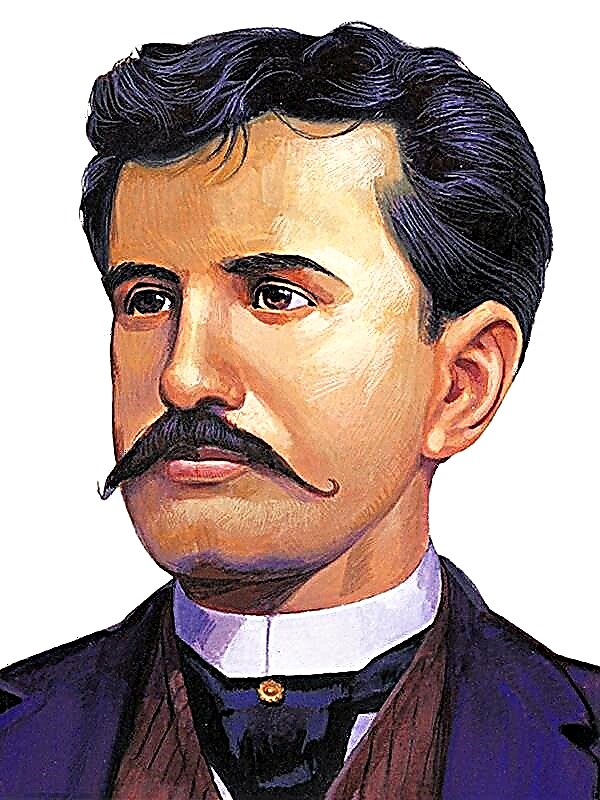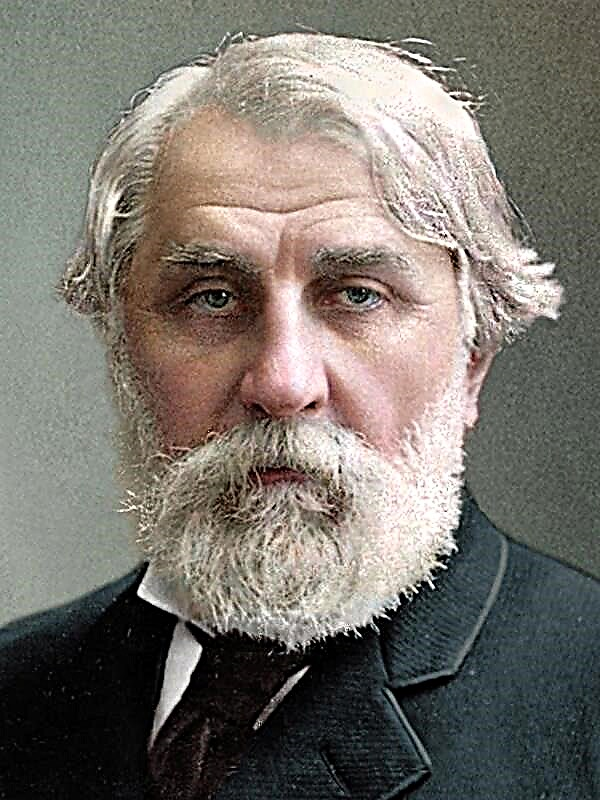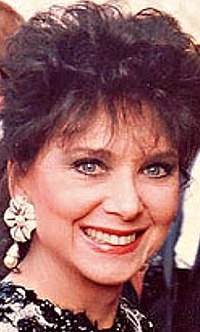Bradbury's dystopia was not the first of its kind, but, nevertheless, was able to become a peculiar symbol of this genre. She is in the top three of the most popular dystopias, and any interlocutor who is fond of science fiction will name her among the readings. But the fame of the book did not bring her widespread understanding: few readers delve into the meaning of the novel, unlike the Literaguru team. We will try to understand this text with you.
History of creation: interesting facts
About the story of the creation of the novel “451 degrees Fahrenheit,” Ray Bradbury singles out the whole chapter “Investments on ten cents“ “451 degrees Fahrenheit” ”in his work“ Zen in the art of writing books. ” The writer is astonished at the enchanting success, calling the work “a penny novel” due to the fact that Bradbury invested $ 8 eighty cents when working on the first version of the text in the form of a story called “The Firefighter”.
Rereading his work in subsequent years, he became convinced that the characters played new paintings in his head when he “asked them questions.” They are perceived by the writer as creatures born in his mind, but he is not able to control their actions. So she disappeared from the pages of Clariss, with her crazy conversations revived interest in the contents of the books of the protagonist Montag.
Ray Bradbury writes his works with complete dedication, forcing himself to work every morning. “In order to learn to write, you must write.” So, re-reading the novel after a long time since its publication, he realized that the name of the protagonist (Montag) is identical to the name of the company producing paper, while Faber, who in the story of the book is his ideological supporter, is a mark of the pencil manufacturer.
The novel itself is entitled "451 degrees Fahrenheit." Which is approximately 232 degrees Celsius and marks the temperature at which the paper begins to burn. The name is given due to the fact that Montag works as a fireman, on the contrary, that is, he burns books.
Essence
We are just covers of books protecting them from damage and dust - nothing more.
The society described in Ray Bradbury’s dystopia receives information from the screens of its TVs, which flooded all the walls of houses, from the noise of radios, and other distributors of digestible and propaganda necessary for the state. But here are books that make you think about everything that happens around people and within society, in this world is prohibited. Where they are burned, there is no room for riots and discontent. A society that is not able to think is easily governed by the government, which is why under the conditions of a totalitarian regime, literature is prohibited by law, from which it is subject to immediate destruction. But our hero, who, on duty, cleanses his little world with fire, suddenly gets carried away by the forbidden fruit and begins to contribute to the concealment of books. But everything secret becomes the property of vigilant guardians of order.
People who have forgotten how to communicate with each other are only able to perceive the information that they provide, without the need for understanding it. This is exactly the future that awaits us if we continue to exist as a rapidly developing consumer society.
Genre, direction
The novel is written in a fantastic genre, representing us the world of the near future. Anti-utopia, which should be understood as fiction, which necessarily includes the exposure of the negative trends in some areas of society and the state. The author exposes the vices, showing an exaggerated picture of the future, which this situation will inevitably lead to. In more detail and less officially about this genre we wrote here.
Along with this work is the utopian world of George Orwell "1984" (analysis of the novel), as well as the anti-utopia of Aldous Huxley “O Brave New World” (analysis of the novel).
The main characters and their characteristics
- Guy Montag (Montag in some translations) - The main character working at the fire station of the future. Its main task is to travel on emergency calls in cases when books are found in houses for burning them through a special device - a blank spreader. This man is a child of his era, he does not think about the essence of his mission until he comes face to face with several individuals who shook his confidence in the correctness of the political system. He is consistently disappointed in his wife, who is indifferent to everything except her favorite screens, in his service, where he sees only cruelty and blind desire to please the bosses, in his society, where he no longer feels organic. From an apathetic slave to routine, he turns into a conscious and active person, able to save age-old wisdom from the hands of barbarians.
- Clarissa McLellan - A young girl who appeared on the first pages of the novel, which gave an impetus to the hero's interest in books and in what is enclosed in them. Her family was considered abnormal, constantly suspecting them of reading. In the evenings, their windows were burning, and it was possible to observe how all the relatives communicate with each other, making loud noises, which caused terrible bewilderment and irritation in all the neighbors in the district. In the film adaptation of the novel, the heroine was allotted more time than in the text. She disappears without a trace, and Montagu can only guess where she went. Most likely, she went into the woods, where the keepers of book knowledge hid.
- Beatty Brunsmaster - Head of the fire department, the first to suspect the interest of the protagonist in the content of books. The author of the famous quote “Keeping books is not a crime. The crime is to read them. ” Sensing Guy's desire to touch the forbidden, the character teaches his subordinate, but this does not lead to the desired result. His conversations with Guy are the basis of the plot, because in them the author sets out his ideas.
- Mildred - The apathetic, insensitive, indifferent to everything the wife of the protagonist, which is a complete reflection of the society described by Ray Bradbury. She sits all day on the sofa in the room with screens, hardly speaks and reacts with apprehension to books found in her husband’s hands. She, without a twinge of conscience, betrays him, declaring the find.
- Faber - Montag's friend and associate, professor, who failed to prevent the adoption of a law prohibiting books. Initially, he treats Guy with concern. When he realizes that the protagonist seeks to learn the inner world of books, a former English teacher seeks to help someone else.
Topics
- The main theme of the novel is the role of the book in human life.. Through utopia, the writer demonstrates a world that can be a reality if you refuse to read literature. Books embody the experience of our ancestors, which people should adopt to move forward. Readers ask questions that are not familiar to the consumer society. Therefore, it is government dependent and very vulnerable. For people who are not able to think independently, the information is blasphemed from the right angle, which gives the state all the levers for complete control.
- A family. The author proves the need for communication and promotion of common family interests. Many people lock themselves in and their gadgets, ignoring the importance of family ties. This is a direct path to alienation from family and friends, which promises people loneliness and insecurity. After all, who, if not relatives, will be able to help in difficult times, support and understand? Alas, the hero later realized the destructive role of screens in his personal life, so he lost his beloved woman.
- Fidelity and betrayal. Those whom Guy trusted betrayed him, obeying what the authorities had instilled in them. When propaganda becomes higher than morality, higher than feelings and affections, the personality is destroyed, and in its place a humble and apathetic slave appears, incapable of emotions and thoughts.
- The theme of technological progress. We must understand that technology is a means, not an end to our existence. We must not allow society to value gadgets and virtual reality more than people. In addition, progress should not crowd out the achievements of past eras, they can be adjacent to each other, only then all generations will achieve a harmony of mutual understanding, which serves as a guarantee of a mutually beneficial exchange of experience.
Issue
- Conflict between society and the individual. Guy Montag comes into conflict with society, starting to read books, instead of destroying them. As a fireman, called up for their destruction, he becomes a double agent - on assignments, instead of destroying literature, he takes part of them to his home. The hero stands out among the people with whom he is forced to share a century. Like Chatsky’s white crow, he is not understood and expelled; he is considered a criminal for wanting to learn new things and think, while society has forgotten how to think and exist independently.
- Advocacy and manipulation of society through the media. Television fills all the problems that arose after the prohibition of literature. The media is becoming an excellent way to manipulate, they "zombied" the population, remaining the only channel for obtaining any information. However, everything that is shown in the screen rooms is brought in from an advantageous angle, and the chances of noticing “something wrong” in the submitted information are reduced to zero due to the inability to think.
- The problem of spirituality it is also born out of the lack of books and the abundance of “information fast food” television screens that, as a monopoly, participate in educating the population. As a result, moral values are replaced by consumer ones.
- The problem of historical memory. Literature, which has collected all discoveries and inventions, all meaningful and thought over for centuries, is the memory of generations. This is a collection of archives of everything created by man since the advent of writing. In a society where books are prohibited, the possibility of preserving all this is lost, which becomes the key to a complete regression for society.
- The problem of the loss of traditions and values of past eras. Technological progress, replacing a crisp book in the hand, can be beneficial and harmful, depending on how you use this find. But without the alternative that the same literature provides, society cannot judge whether it manages its capabilities in this way. Despite the improvement in the quality of the displayed image and the increase in screen diagonals, the technique can remain only a beautiful cover for the apotheosis of emptiness.
Meaning
Ray Bradbury's idea is this: without relying on the experience of past generations, on free and honest art, the future, which is described in the novel “451 degrees Fahrenheit,” is inevitable. People are increasingly choosing the second between the book and the entertaining video, the level of education of the population is falling, due to which there is massive degradation and the inability to think, which entails stagnation in every area of human activity. Instead of finding out, and checking at the same time, the information that is so conveniently and simply presented on the screens, the viewer is content with a superficial picture of the world, which is carefully laid out in 5 minutes of broadcast time. And if the same viewer himself found, for example, versatile facts about what he was served with propaganda sauce, his worldview was more objective and richer. In art, which is only one of the sources of information and custodians of culture, those grains of truth are preserved that could shed light on the true state of things. Unfortunately, the author’s gloomy forecasts come true in individual countries where the level of literacy is low, but the indicators of hypocrisy, poverty and aggression are off scale. People kill each other, not even thinking about why this is necessary, if initially all religions had a peaceful promise, and all statesmen should lead people to prosperity.
The writer’s idea that a person, like Guy Montag, should not be afraid to stand out from the crowd, even if the whole society opposes him, is also understandable. The desire to think and learn something new is a natural need, and in the age of information technology - a necessity at all.
Criticism
Because of its acutely social orientation, the novel did not immediately see the light. Before this, the novel underwent many censorship changes. So, he lost numerous abusive words before the release of the book for the school edition.
In 1980, the writer noticed that the publisher was releasing his book in abbreviated form, excluding scenes unacceptable to them. The writer managed to stop this practice after the demand for printing in full.
In Soviet criticism, the range of reviews is diverse: from sharply negative reviews to praise and even flattery.

